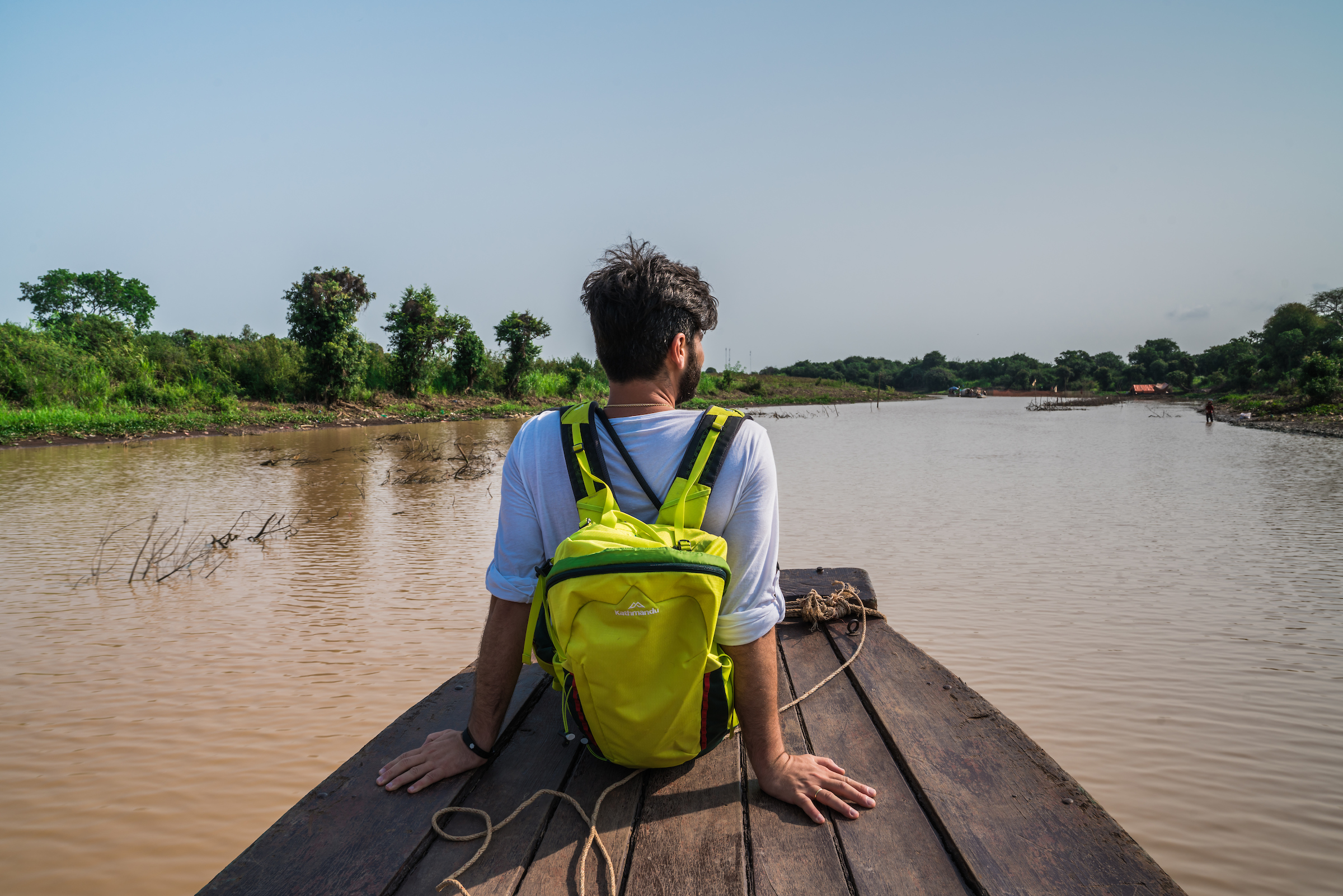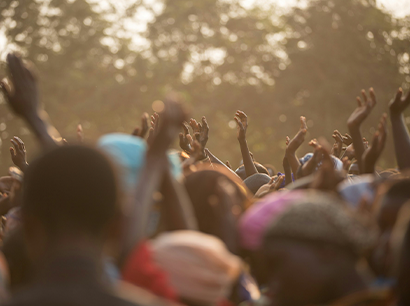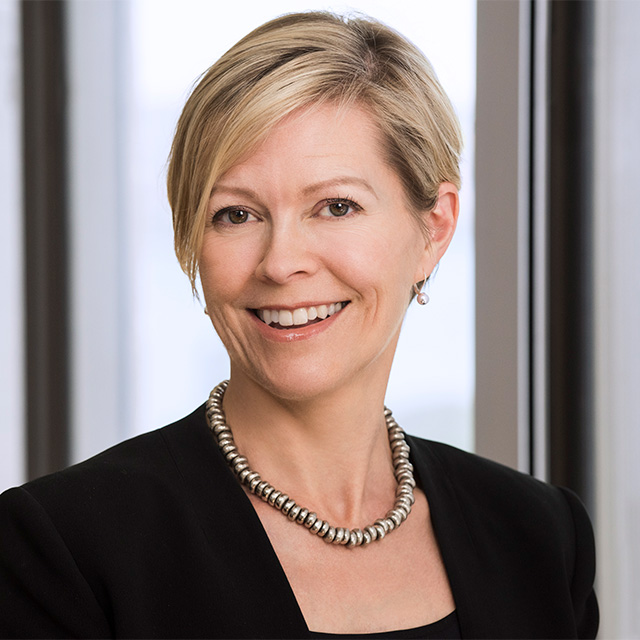We are thrilled to announce that Rowlands Kaotcha has been appointed The Hunger Project’s President and CEO. Rowlands most recently served on the executive team as the global Chief Program Officer, and has been with The Hunger Project for 23 years, including serving as Country Director in Malawi, Southern Africa Region Director, Vice President for the Africa Region, and Global Vice President for Program Strategy.
“Rowlands is an inspiring and thoughtful leader,” said Sheree Stomberg, Chair of the Global Board of Directors. “The Board is confident that Rowlands has the strategic vision and leadership skills — all rooted deeply in the principles and methodology of The Hunger Project — to bring the organisation to breakthrough levels of impact and influence.”
“Having grown up in a rural village in Malawi, I know how it feels to be hungry and to be afraid of the future,” said Rowlands. “A world free from hunger — that’s why I am here. That’s why I do what I do. For me, The Hunger Project is not just a job. This is my life. I am honoured by the confidence of the Board and the opportunity to serve as President and CEO. It is truly the privilege of a lifetime.”
Rowlands succeeds Tim Prewitt, who, over his four-year tenure, successfully led The Hunger Project to revise the mission and vision, develop the “Amplify” strategic plan, enhance internal systems for data, learning, and finance, and strengthen partnerships and global influence.
“We are grateful for Tim’s leadership and continued support,” Sheree said. “Tim will now serve The Hunger Project as a Senior Advisor to ensure a smooth and effective transition.”
In addition, Jenna Recuber, who most recently served as Chief Development and Communications Officer, and who has been with the organisation for 20 years, has been appointed Deputy CEO, and will provide strategic leadership as we look to our future growth.
Sheree noted that the Board is excited that Rowlands and Jenna are stepping into new leadership roles from within The Hunger Project. “It has always been the dream of the Board to draw from the talent pool within the organisation,” she said. “We have the utmost confidence in the leadership of Rowlands, as our President and CEO, Jenna as our Deputy CEO, and Kosha Shiswawala, as our CFO, and know that together they will powerfully lead the organisation, bringing in the strengths of others, to advance our mission.”
“It’s been a privilege to work alongside so many talented staff at The Hunger Project, including Rowlands Kaotcha,” said outgoing CEO Tim Prewitt. “I am confident Rowlands will lead the expansion of our impact to even greater heights.”
Rowlands has led the expansion of The Hunger Project in southern Africa, and has represented The Hunger Project in speaking engagements across Europe, Australia and the United States. Prior to joining The Hunger Project, Rowlands served in roles at United Purpose (formerly Concern Universal) and at a private national seed company in Malawi. He has a B.Sc. in Agriculture and an M.Sc. in Agronomy from the Bunda College of Agriculture at the University of Malawi, and an MBA from the Eastern and Southern African Institute of Management in Tanzania.
“The Hunger Project’s work to transform systems of inequity that give rise to hunger is needed now more than ever,” Sheree added. “Our organisation was founded on the belief that another world is possible – and together, we can change the way the world works so that each and every human being does not go to bed hungry at night. We’ve seen this work in thousands of villages worldwide. It is indeed possible. We are grateful that Rowlands will lead us forward so this bold vision is a reality everywhere.”
Author: nicole lovelock
“A life-altering experience”
Our Thrive trippers share their experiences in Zambia.
In late October and early November, a group of ten people travelled to Zambia to see the work of The Hunger Project firsthand. Joining them to facilitate were longtime THP Investor Claire Whitbread and our Head of Partnerships and Immersion Experiences, Jessica Parker.
For many, it was their first trip to this beautiful and vibrant continent. Collectively, they raised close to $100,000 to support our programs and help create a world without hunger.
We sat down with the participants to ask them what they gained from the trip. Here’s what some of them generously shared.
“The trip was absolutely incredible. I loved every aspect of it and am still processing every part of what we experienced and the impacts. The continual evolution of THP as they grow with regard to the priorities and needs of the communities is exceptional, exciting and impactful beyond words.”
Melissa
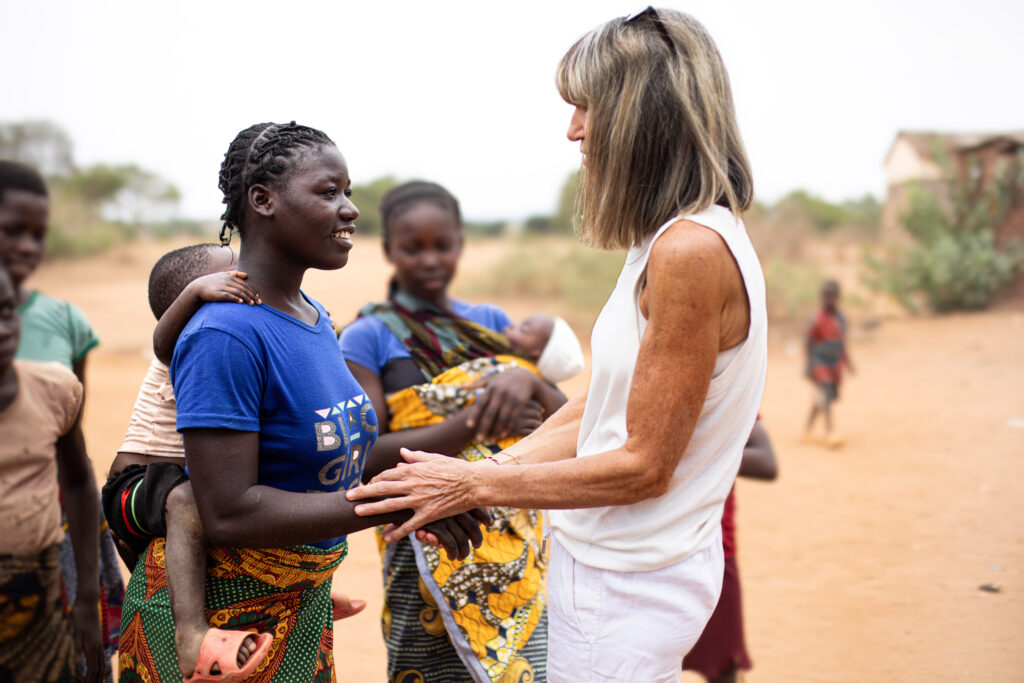
“Everything about the Thrive program was first class! I am so proud and happy to have been part of the group and to experience the trip together. I still can’t believe I’ve been to Africa, but also know I’ve learnt so much, in so many different ways. I also loved Claire’s session about being present, I thought of this often during the trip and have done so many times in the last week.”
Narelle
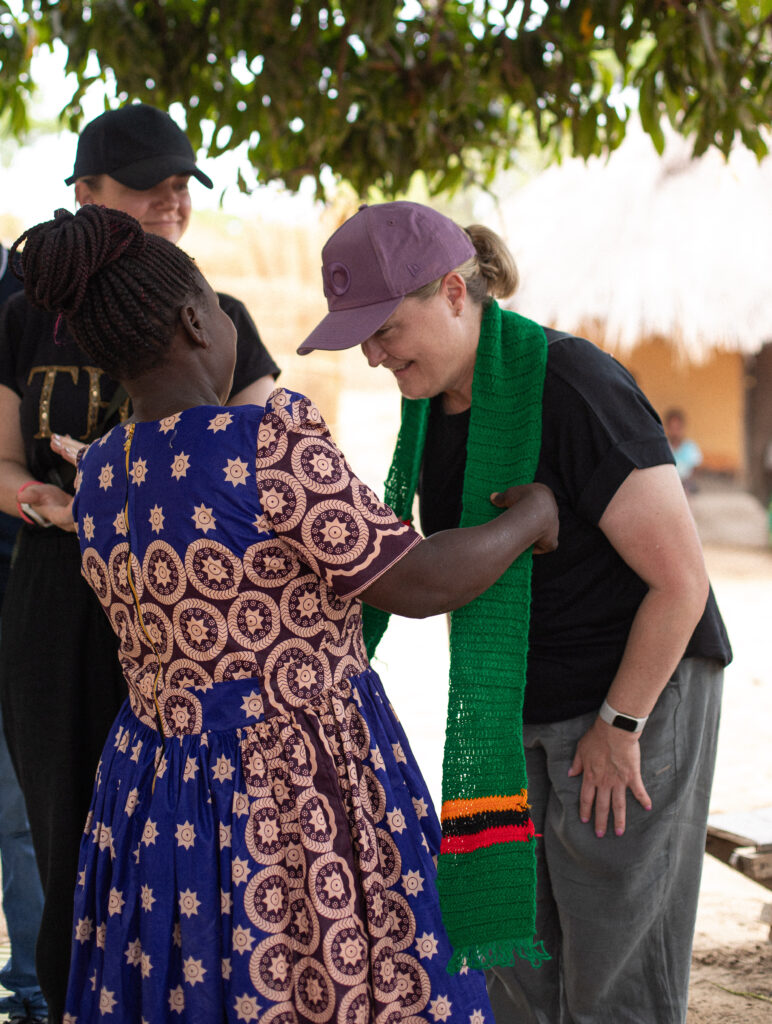
“Participating in this trip has provided me with an irreplaceable perspective and a deeply-rooted understanding of The Hunger Project’s impact both globally and at the grassroots level. Experiencing firsthand the resilience of communities facing poverty and hunger has been profoundly transformative‚ a true awakening to the power of dignity, resilience and the unyielding spirit of communities facing immense hardship. To witness the courage and resourcefulness of individuals navigating the stark realities of poverty and hunger has been both humbling and deeply moving.”
Vashti
What three words come to mind to describe your Thrive experience?
“Inspiring, grounding, life-affirming.”
Jac
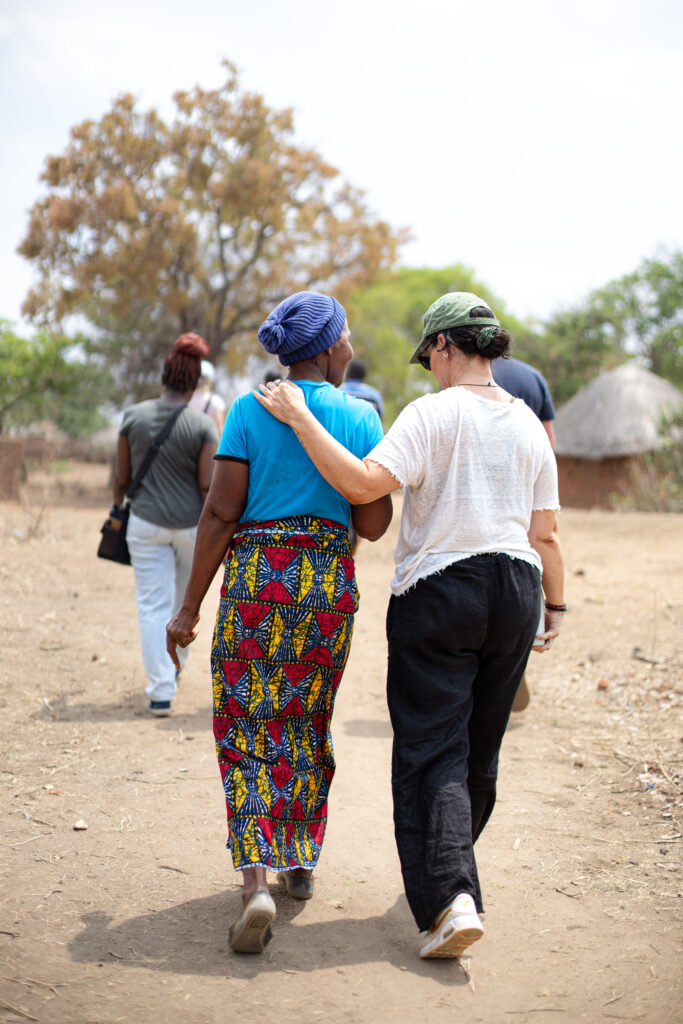
“Meaningful, educational, life-tweaking.”
Gabrielle
“Transforming, pensive, gratitude.”
Sina
“An incredible experience.”
Tom
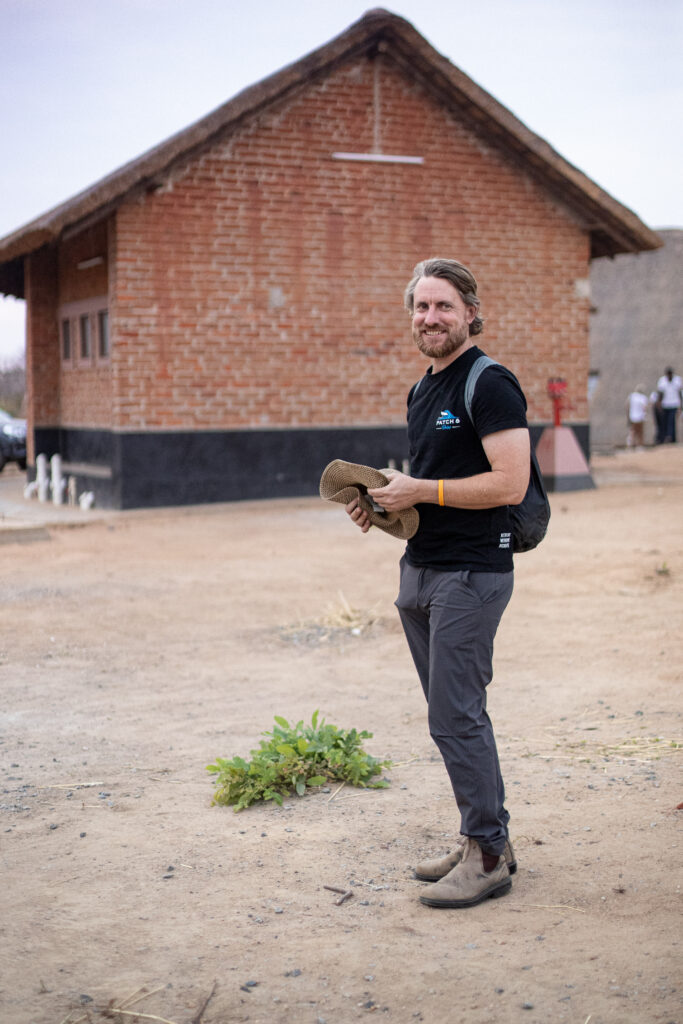
Interested in having a life affirming new experience in 2025? The Hunger Project Australia are running more Immersion Experiences in Africa next year for both individuals and corporate groups. You can register your interest here and we will be in touch!
High hopes to end hunger in Malawi
Talia Smith, THP-Australia Program and Grants Manager, travelled to Malawi with colleagues from THP-Netherlands to see firsthand how our community partners are thriving. Australian Investors are supporting two new Epicentres at Majete 7 and Majete 8, both in their first year of the Epicentre Strategy.
MAJETE 7
Even though the project is only in its first year, there has definitely been some amazing progress made! We sat in on a WASH session and a HIV/AIDS session run by some newly trained Animators.
We met with the Epicentre Chair, who is a very lovely guy and only 32! He proudly showed us around some of the backyard gardens that they’ve started due to the sessions run by nutrition Animators.
We also saw two Village Savings and Loans Associations (VLSA) groups in action. There is still a lot of progress to be made, especially in accessing water and healthcare, but the community is all so so lovely and energised about the project.
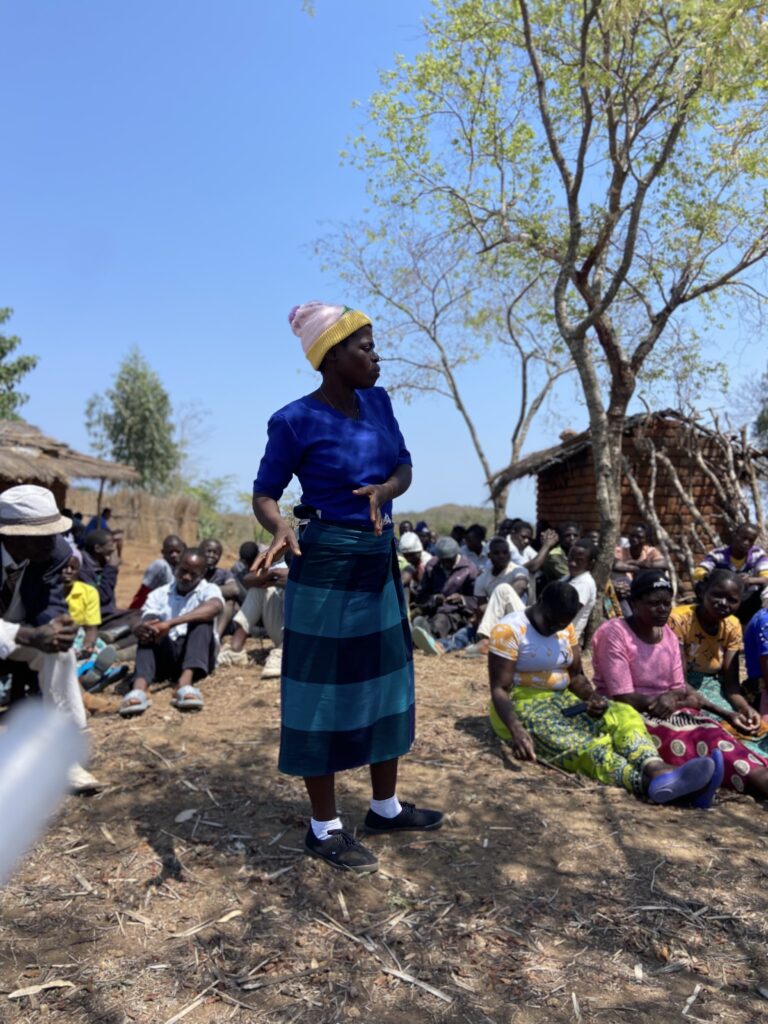
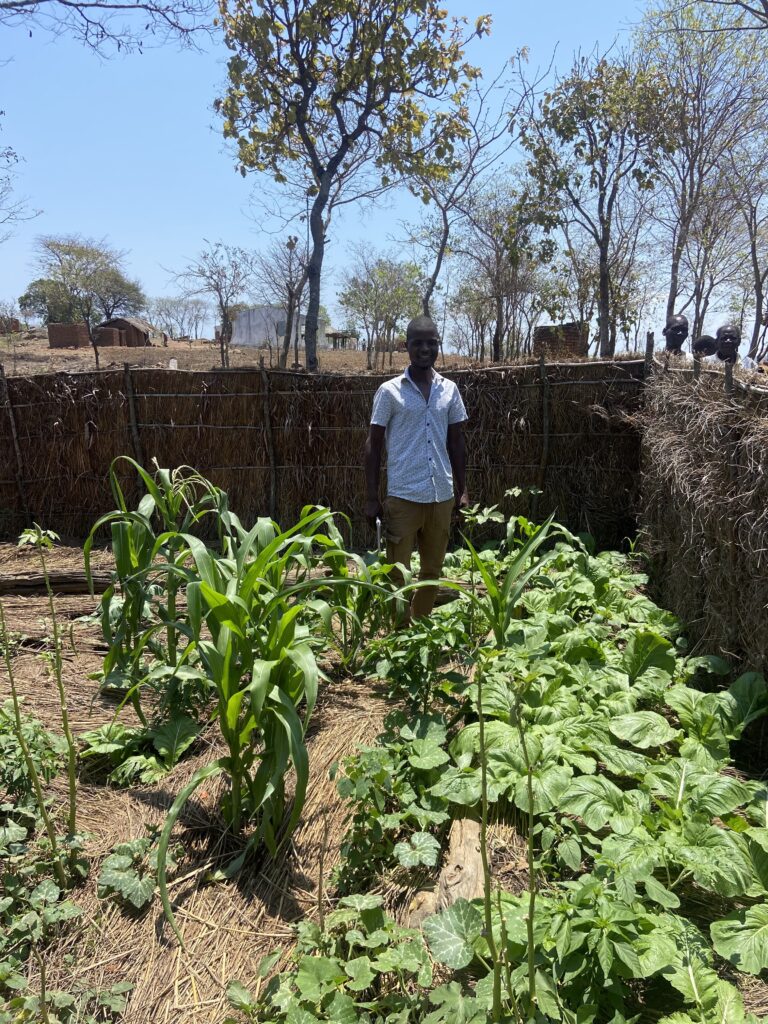
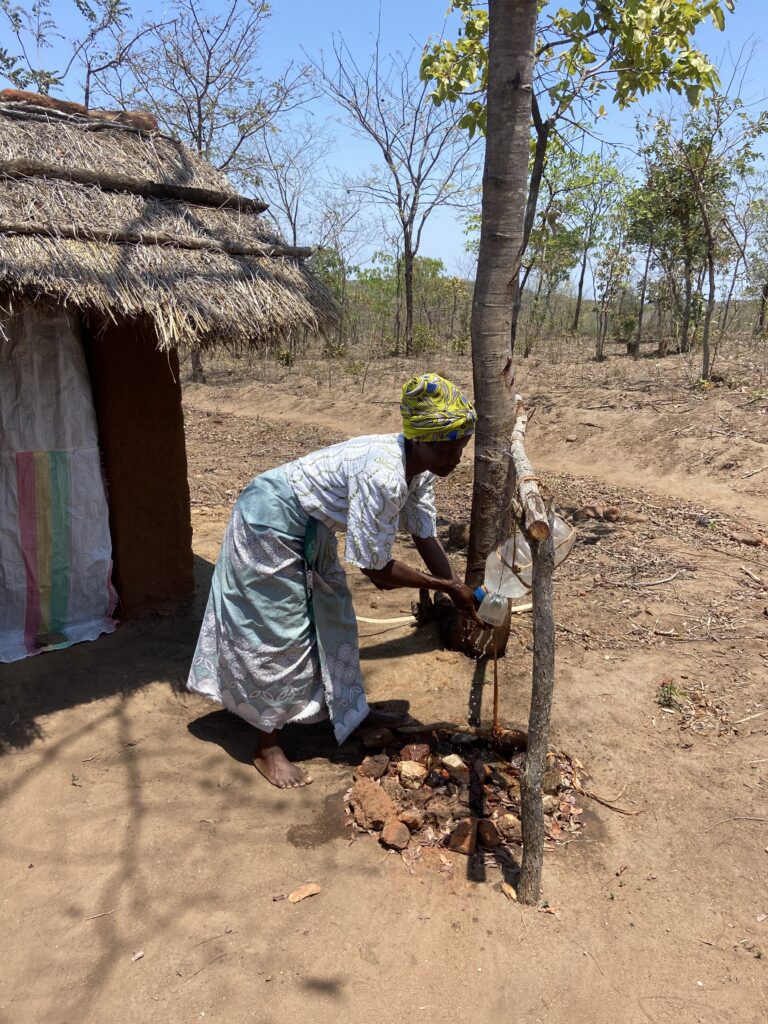
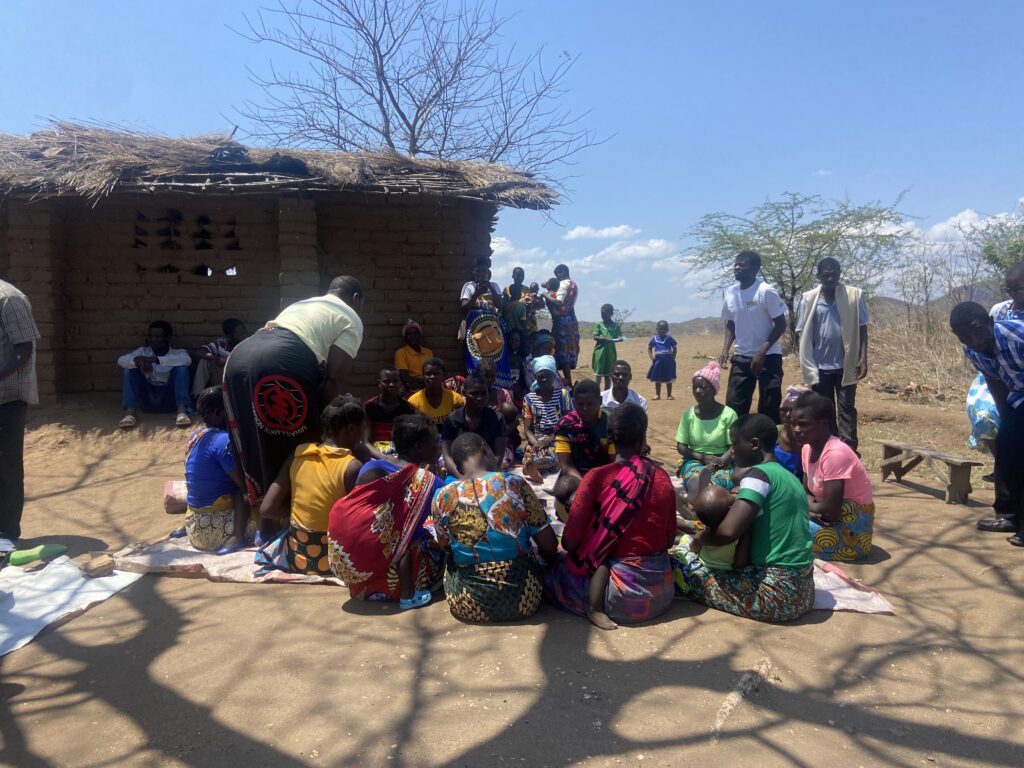
MAJETE 8
Our first stop was the secondary school. We had the opportunity to sit down with 10 students, as well as the principal, vice principal and one of the teachers. The students discussed number of challenges including lack of electricity at the school, long distances to travel and issues around menstruation for girls.
We sat with the children for a while and discussed their dreams and aspirations for the future. We discuss who they look up to, and many of them mentioned their lovely teacher who was sitting with us.
Majete 8’s leadership committee has taken a unique approach by promoting the participation of youth. The Chair is only 20 years old. We took the opportunity at the end of the meeting to speak to three of the younger women in the leadership committee and the Chair to discuss the challenges that they face, their motivation to be involved in the project and their visions for the future, and they all spoke so passionately and articulately. It was so inspiring to hear from all of them and a wonderful note to end the day on.
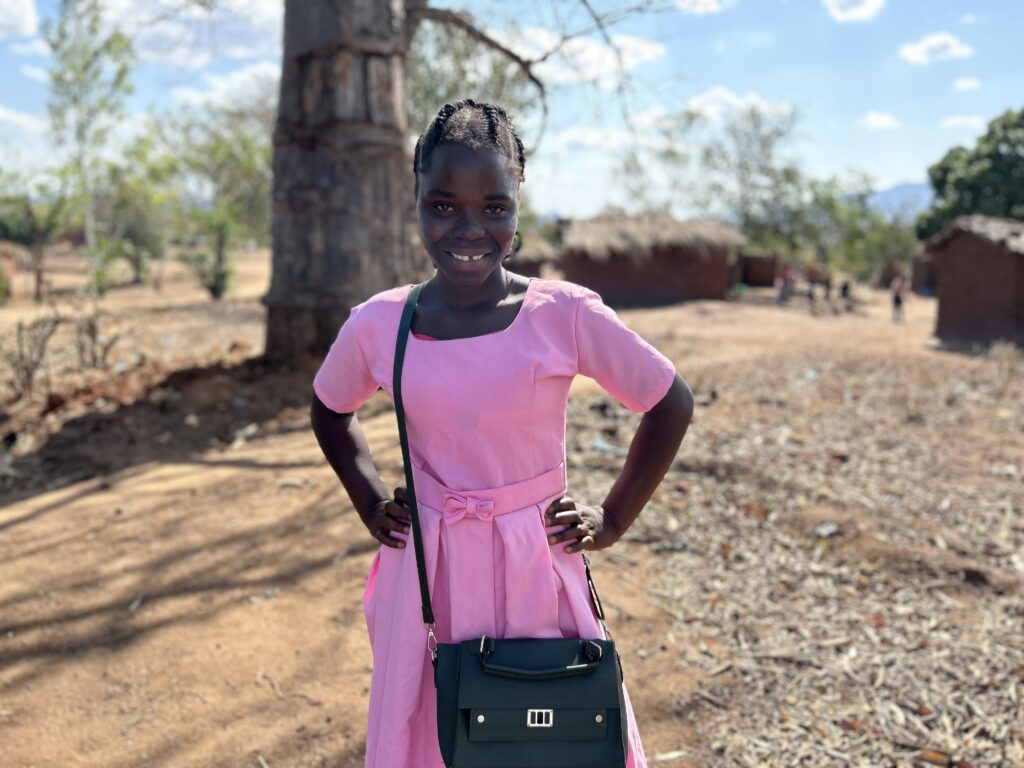

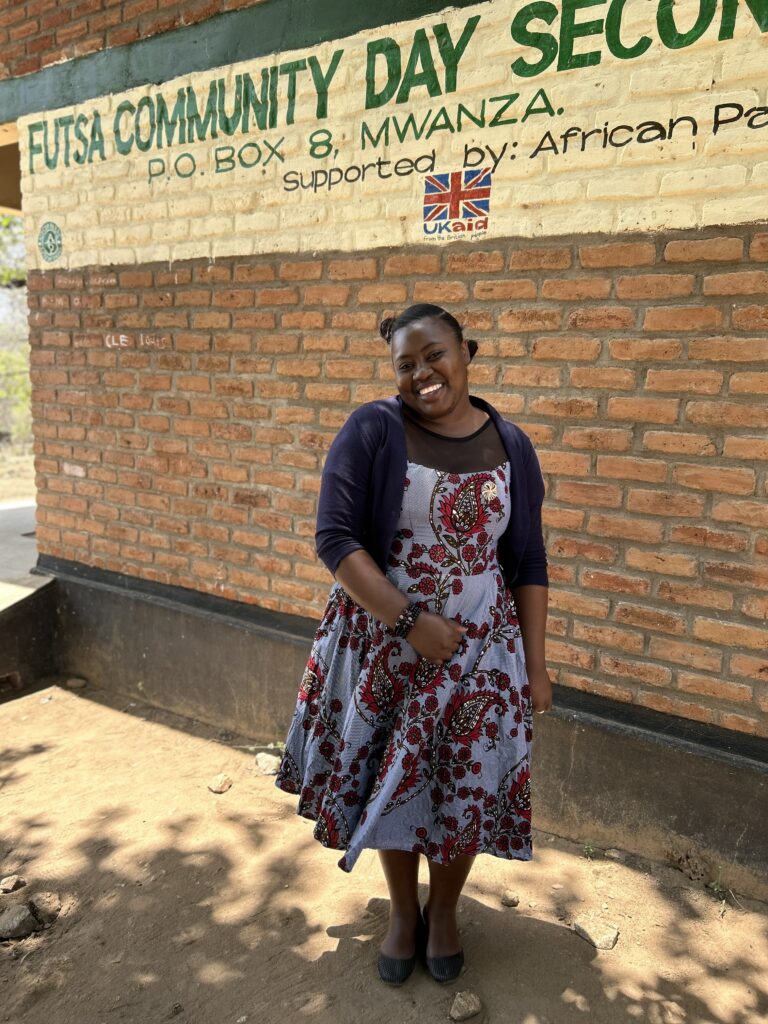
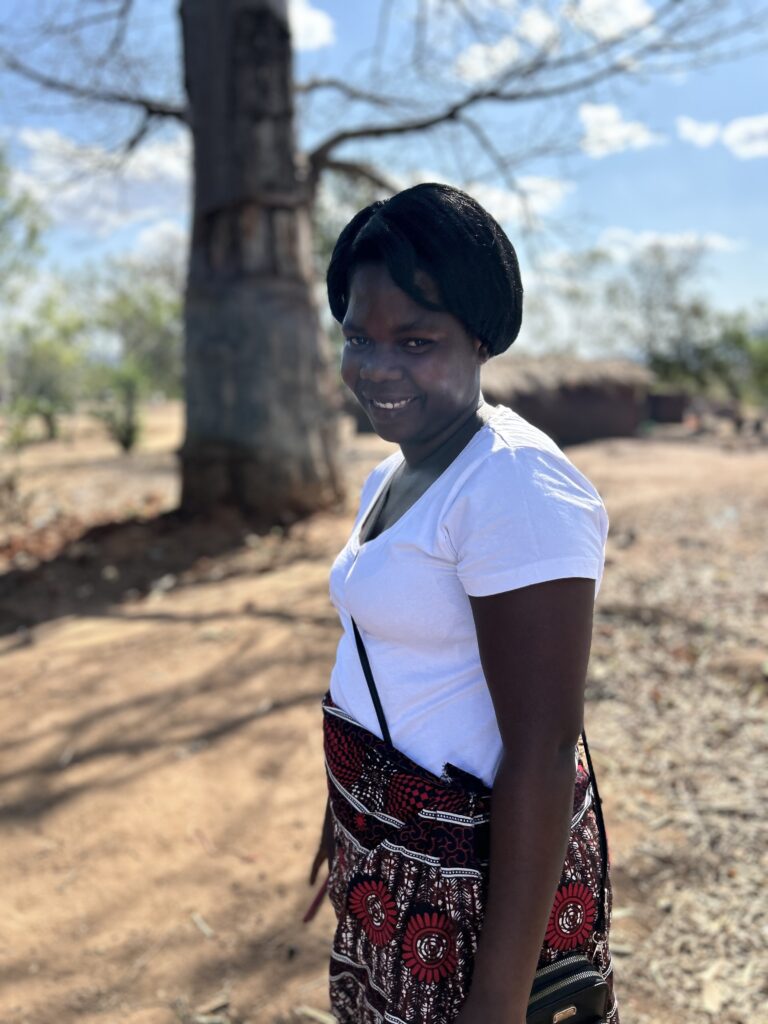
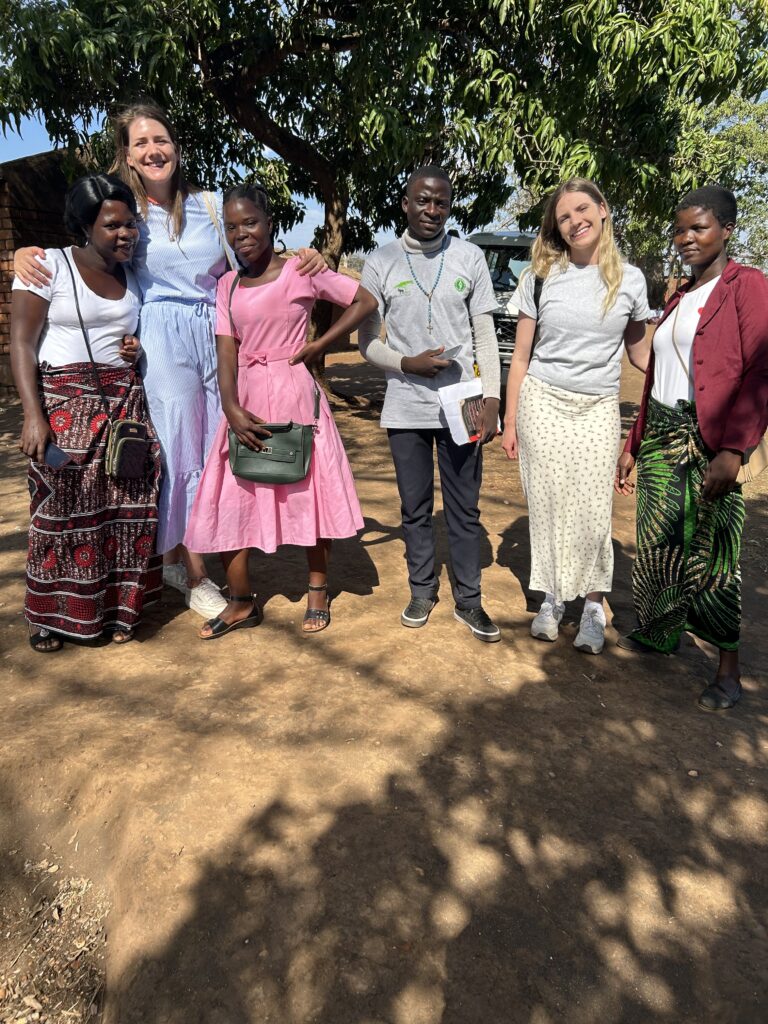
A connected Epicentre is a healthy Epicentre
Imagine having to give birth in the dark because there was no electricity.
Or not being able to have your baby immunised because there was no refrigeration.
Electricity literally saves lives in Africa.
Electricity connectivity has been a significant challenge at Dominase Epicentre in Ghana for several years now, due to low supply of electrical poles and electrical cable for installation. The lack of electricity is concerning, particularly for essential facilities like the health clinic, impacting the ability to provide healthcare after dark and keep vaccinations cold due to the lack of a working fridge.
Epicentre Nurse Hagar explains.
“Due to the persistent lack of electricity at the health facility, numerous challenges have arisen. The situation was particularly difficult for pregnant patients, as they too would be referred if they arrived at the facility after 6 PM.
Additionally, every Wednesday, the health facility conducted weighing and outreach programs. However, the lack of electricity meant that the vaccines couldn’t be stored on-site, for the children, necessitating regular trips to another health facility to acquire them.”
THP-Ghana saw the dire need by the health facility for electricity and collaborated with the Electricity Company of Ghana to successfully have electricity connected..
“The health facility now enjoys a continuous and uninterrupted 24-hour supply of electricity. Now, patients can receive medical attention at the facility even after 6 PM, eliminating the need to refer them to another health facility.
The availability of electricity allows for proper drug storage on-site, ensuring that medications are readily accessible.
This improvement in electricity supply has also addressed the challenges associated with deliveries, enabling them to be carried out smoothly without any issues related to inadequate lighting.”
Leaving a brighter footprint for the future
We sat down with Christina Tunnah, General Manager Americas and Global Marketing and Brands at nib, to hear more about why they choose to support The Hunger Project.
Q: Hi Christina! In your own words – tell us a little bit about nib.
nib’s purpose is your better health. We are a trusted partner in helping our members and travellers make more informed healthcare decisions, transact with healthcare systems and generally live healthier lives.
We are also Australia’s third largest travel insurer and global distributor of travel insurance through our businesses, nib Travel and World Nomads, providing financial protection and assurance to travellers wherever they are in the world.
Q: How did you first hear about the work of The Hunger Project?
We began partnering with The Hunger Project through The Footprints Network in 2022. We recognised your work to end hunger across the world through tackling issues including poverty, gender equality and food and water security resonated strongly with travellers wanting to give back and support the communities they visit on their travels.
Q: What do you and nib’s customers love about our work?
The Hunger Project Australia’s program model has a strong emphasis on community-led initiatives, which we know are crucial to create enduring impact. Epicentres are transformative hubs for community development, becoming focal points where local leaders and champions drive change. By empowering local communities to take charge of their own development, it ensures that solutions are sustainable and tailored to the specific needs of each community, no matter what part of the world they are in.
There’s also a global impact encompassing many regions across the world, which provides us great opportunities to fundraise for a range of projects addressing community issues in various countries where we know our travellers want to give their support.
Q: What are nib’s values and how do they tie back to our partnership?
Our values guide each decision we make and shape how we interact with each other, our members, travellers, suppliers and shareholders. One of our core values is ‘Our footprint matters’, highlighting our responsibility to lead by example and contribute towards the sustainability of the communities in which we operate.
This is why we believe that as travel insurance provider we have a responsibility to give back, so we support international communities through The Footprints Network, founded by World Nomads. When purchasing travel insurance with us, travellers can choose to add a small donation to their policy price to help fund a community development project. We work with reputable charities and NGOs, and absorb the administration costs, so that 100% of donations goes directly to the projects chosen by travellers.
Q: Why do you think it’s important to embed purpose into your business model?
Embedding purpose connects our members, travellers and employees to the positive impact we strive to have on the communities where we live, work and operate. We know people want to support businesses who are active as responsible corporate citizens.
Our World Nomads travellers have told us how important travelling responsibly is to them, which is why The Footprints Network was created, so they can directly support communities they visit.
Q: What advice would you give to other corporates who are considering giving back through a partnership?
Connecting partnerships with your purpose is really important, as it fosters greater connection for employees and customers in understanding the ‘why’ behind the partnership. For us, it drives further engagement for our people and customers, leverages more support for your partners and ultimately drives more positive impact in the community – it’s a win-win!
Small gestures also add up to a lot over time. With Footprints taking only microdonations from travellers, the individual donations may seem small, but together they have provided an enormous amount of support to charitable organisations and their work over the last 20 years, with over $5.6 million in donations, supporting over 260 community development projects globally.
Meet our newest partner: Guzman y Gomez!
We are delighted to share this delicious news! We’ve partnered with Australia’s fastest-growing fast food company Guzman y Gomez to combat world hunger. GYG will support our Eat Well program in Mexico, where hunger and malnutrition is a huge and growing challenge, especially for Indigenous and rural women.
The partnership underpins GYG’s mission to reinvent fast food and change the way the world eats by partnering with community organisations around the world and driving education that will make a positive impact on the world we live in.
The Eat Well program works with women and communities to promote eating traditional, Indigenous food. This means growing food locally and providing education on how to make food as nutritious as possible. Led by our local THP-Mexico team, it’s a program that empowers local women in becoming community leaders in the fight against hunger.
Montserrat Salazar Gamboa, Country Director of The Hunger Project Mexico, said partnerships like this are vital.
“Guzman y Gomez are the perfect partner for our Eat Well program. Their support means we can empower even more women to lead their communities and use local knowledge to change the systems that keep people in hunger and poverty.”
Philippe Magid, CEO of The Hunger Project Australia, praised Guzman y Gomez for their leadership and generosity.
“Creating a world without hunger is possible thanks to committed, passionate partners like GYG. Businesses with purpose embedded in their DNA are key to helping overcome global challenges like hunger, poverty and inequality. We’re thrilled that Guzman y Gomez and their amazing team and customers are supporting women and families in Mexico to thrive.”
Getting to know … Kate Howitt
We’re thrilled to welcome our newest National Board member to The Hunger Project Australia family!
Kate has some serious financial credentials with more than two decades in portfolio management, and sits on various finance, strategy and investment committees across sectors.
We sat down with Kate to find out a bit more about her story, and connection to our work.
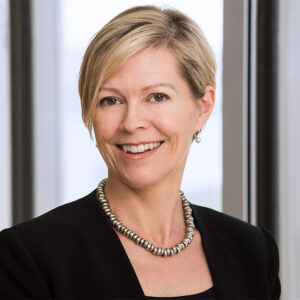
Welcome Kate to the THPA Board! How did you first hear/get involved with The Hunger Project?
I got to know (previous chair) Diane Grady and she was a tireless advocate for THPA. She thought that I would find the proposition compelling – and she was right!
What was it about our work that resonated so strongly with you?
I’m strongly of the view that Australia is the best place to live in the world – but those of us who are fortunate enough to live here can’t help but be aware of how big the gap is between our community and other communities. To address that, the old adage of “teaching people to fish” is really powerful. Not only is upskilling communities a more effective way to support those people, it also accords them more dignity and respect.
Is there a particular program or part of our work that you love?
I remember reading Melinda French Gates’ “The Moment of Lift” in which she beautifully explains how intertwined women’s experiences are with human development. Empowering women is central to communities bettering themselves. So if you want to work on hunger alleviation it’s right and necessary to focus on issues like early marriage and other ways to empower the women of the communities we are involved with.
This is a get to know you – tell us three quick facts!
I co-founded an indoor rock climbing business (but I’m not a climber, my daughter is)
I lived in Santa Fe, New Mexico for seven years.
I did a Liberal Arts degree but ended up as an institutional money manager.
What are you most excited about in the 5 Year Strategic Plan? How will your particular skills help bring it to life?
I love the holistic approach we take. Alleviating hunger is about farming, and seeds and irrigation – but also about education and equality. The problem we are tackling is multi-faceted with lots of interrelated issues – and that’s the sort of problem I’ve been working on throughout my career.
What advice would you give to someone who is considering joining a not-for-profit Board?
Only get involved where you are passionate about the mission and excited by the team.
And lastly – finish this sentence “When I give, it brings me ….” ‘
… gratitude, that I can help to uplift others.





